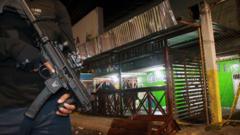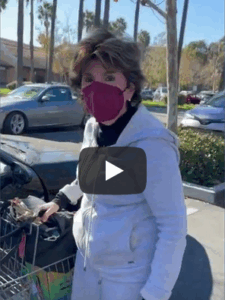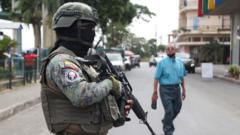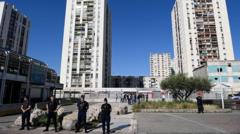In a shocking incident on Sunday night, 17 people were killed in a mass shooting at La Clínica bar in El Empalme, Ecuador, as gunmen armed with pistols and rifles opened fire indiscriminately. The attack, which also left 14 others injured, has drawn attention to Ecuador's deepening crisis of drug-related violence.
Authorities report that among the deceased is a 12-year-old boy who fled the scene but tragically collapsed from his injuries after running over a kilometer. Images from the scene reveal grim details, with bodies covered in white sheets strewn across the street. This attack comes as Ecuador grapples with spikes in violence tied to drug trafficking.
According to police Major Oscar Valencia, the assailants arrived in two pickup trucks and unleashed gunfire on patrons. Witness testimonies suggest the attackers shouted "active wolves," hinting at possible involvement with a notorious gang competing for territory in the lucrative drug trade. The province of Guayas has increasingly become a battleground for these criminal groups.
This incident follows another shooting just a week prior in the Playas region, where nine individuals were killed while playing a game of pool. Officials indicated that those victims were not the main targets but rather collateral damage in the ongoing turf wars among cartel factions.
In response to escalating violence, President Daniel Noboa declared a state of war against organized crime in 2022. Since making this declaration, Ecuador has witnessed a surge in homicides, with a rate currently at 38 per 100,000 population, making it one of the most perilous nations in the region. In the first five months of 2023 alone, the country recorded over 4,000 homicides, exacerbating fears about public safety amidst rampant drug trafficking.
As security forces strive to manage the unrest, Ecuador remains a pivotal gateway for nearly three-quarters of the world's cocaine supply. The situation invites grave concern from international observers, particularly as the government tackles challenges of violence and criminal control in the face of such overwhelming statistics.
Authorities report that among the deceased is a 12-year-old boy who fled the scene but tragically collapsed from his injuries after running over a kilometer. Images from the scene reveal grim details, with bodies covered in white sheets strewn across the street. This attack comes as Ecuador grapples with spikes in violence tied to drug trafficking.
According to police Major Oscar Valencia, the assailants arrived in two pickup trucks and unleashed gunfire on patrons. Witness testimonies suggest the attackers shouted "active wolves," hinting at possible involvement with a notorious gang competing for territory in the lucrative drug trade. The province of Guayas has increasingly become a battleground for these criminal groups.
This incident follows another shooting just a week prior in the Playas region, where nine individuals were killed while playing a game of pool. Officials indicated that those victims were not the main targets but rather collateral damage in the ongoing turf wars among cartel factions.
In response to escalating violence, President Daniel Noboa declared a state of war against organized crime in 2022. Since making this declaration, Ecuador has witnessed a surge in homicides, with a rate currently at 38 per 100,000 population, making it one of the most perilous nations in the region. In the first five months of 2023 alone, the country recorded over 4,000 homicides, exacerbating fears about public safety amidst rampant drug trafficking.
As security forces strive to manage the unrest, Ecuador remains a pivotal gateway for nearly three-quarters of the world's cocaine supply. The situation invites grave concern from international observers, particularly as the government tackles challenges of violence and criminal control in the face of such overwhelming statistics.

















